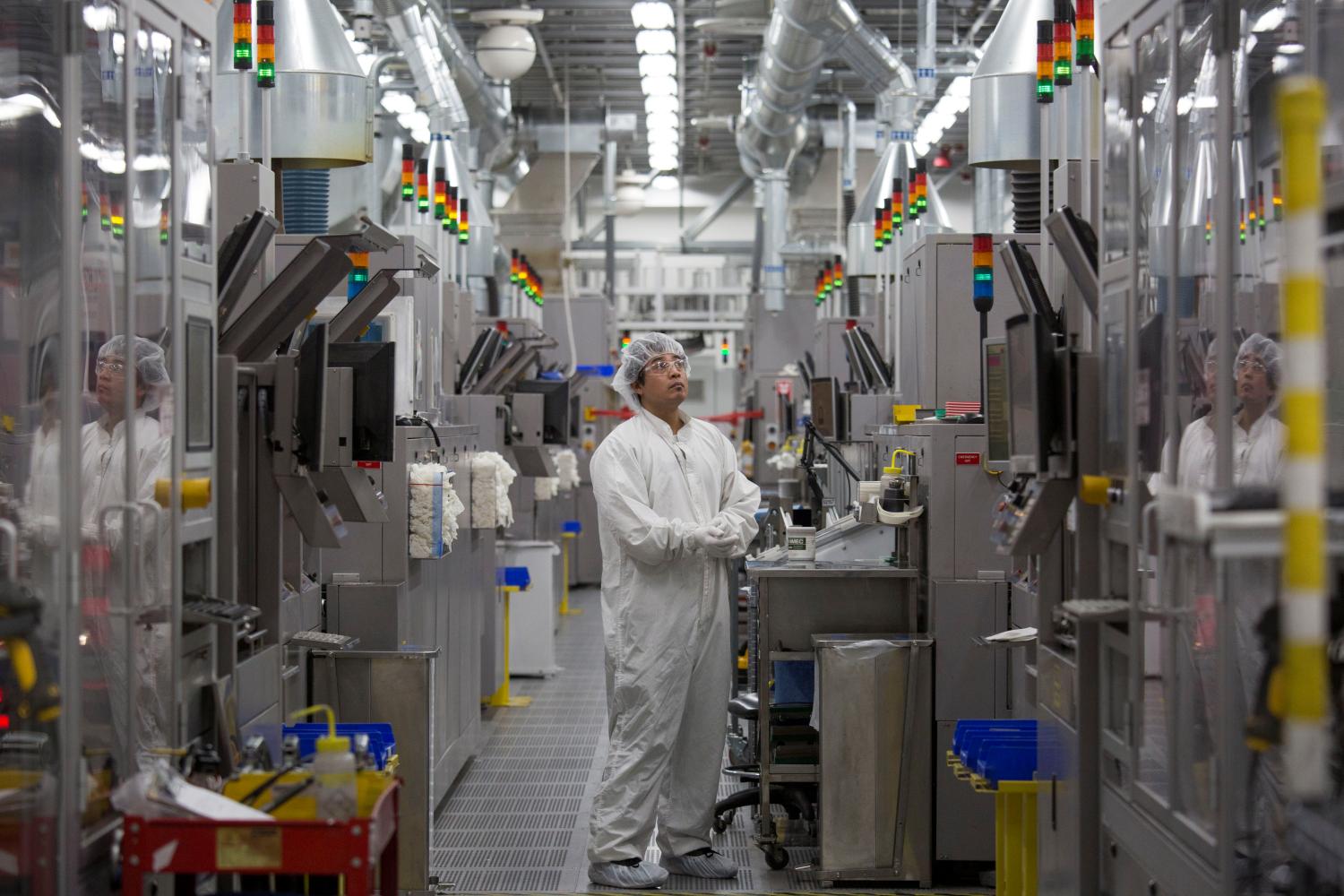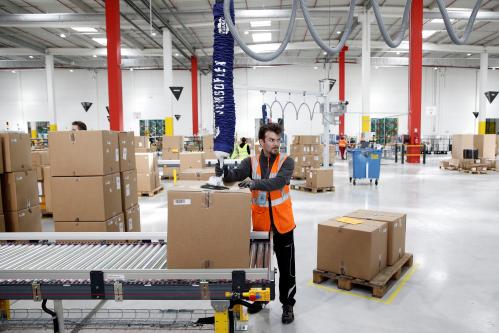This paper is part of the Spring 2018 edition of the Brookings Papers on Economic Activity, the leading conference series and journal in economics for timely, cutting-edge research about real-world policy issues. Research findings are presented in a clear and accessible style to maximize their impact on economic understanding and policymaking. The editors are Brookings Nonresident Senior Fellow and Northwestern University Economics Professor Janice Eberly and James Stock, Brookings Nonresident Senior Fellow and Harvard University economics professor. Read summaries of all six papers from the journal here.
Abstract
Is automation a labor-displacing force? This possibility is both an age-old concern and at the heart of a new theoretical literature considering how labor immiseration may result from a wave of “brilliant machines,” which is in part motivated by declining labor shares in many developed countries. Comprehensive evidence on this labor-displacing channel is at present limited. Harnessing a model from Acemoglu and Restrepo (2018), we first outline the various channels through which automation impacts labor’s share of output. We then turn to empirically estimating the employment and labor share impacts of productivity growth—an omnibus measure of technological change—using data on 28 industries for 18 OECD countries since 1970. Our main findings are that although automation has not been employment-displacing, it has reduced labor’s share in value added. We disentangle the channels through which these impacts come about by considering both the effects occurring within the advancing industry and spillovers onto the industry’s suppliers and customers, and by separately estimating the wage, output, and price responses to automation. Our estimates highlight that the labor share-displacing effects of productivity growth, which were absent in the 1970s, have become more pronounced over time, largely because of a weakening wage response. This finding is consistent with automation having become less labor-augmenting over time.
Citations
Autor, David, and Anna Salomons. 2018. “Is automation labor-displacing? Productivity growth, employment, and the labor share.” Brookings Papers on Economic Activity, Spring, 1-87.
Conflict of interest disclosure
David Autor is a trustee and board member for the Urban Institute, and codirector of the Labor Studies Program at the National Bureau of Economic Research. Autor received financial support for this work from the IBM Open Collaboration Research award program, Schmidt Family Foundation, and Smith Richardson Foundation. Anna Salomons received financial support for this work from the Netherlands Organization for Scientific Research through the Innovational Research Incentives Scheme Veni research grant program. With the exception of the aforementioned, the authors did not receive financial support from any firm or person for this paper or from any firm or person with a financial or political interest in this paper. With the exception of the aforementioned, they are currently not officers, directors, or board members of any organization with an interest in this paper. No outside party had the right to review this paper before circulation.







